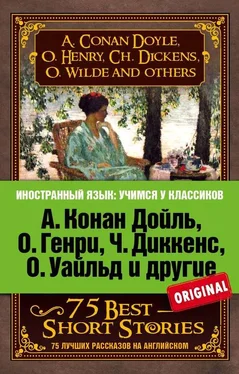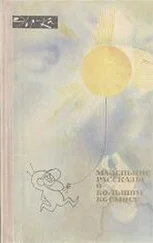She could get no further then for very exhaustion; and she went off in sudden collapse a few hours later, without having said anything more to her husband on the subject of her love for the poet. William Marchmill, in truth, like most husbands of several years’ standing, was little disturbed by retrospective jealousies, and had not shown the least anxiety to press her for confessions concerning a man dead and gone beyond any power of inconveniencing him more.
But when she had been buried a couple of years it chanced one day that, in turning over some forgotten papers that he wished to destroy before his second wife entered the house, he lighted on a lock of hair in an envelope, with the photograph of the deceased poet, a date being written on the back in his late wife’s hand. It was that of the time they spent at Solentsea.
Marchmill looked long and musingly at the hair and portrait, for something struck him. Fetching the little boy who had been the death of his mother, now a noisy toddler, he took him on his knee, held the lock of hair against the child’s head, and set up the photograph on the table behind, so that he could closely compare the features each countenance presented. By a known but inexplicable trick of Nature there were undoubtedly strong traces of resemblance to the man Ella had never seen; the dreamy and peculiar expression of the poet’s face sat, as the transmitted idea, upon the child’s, and the hair was of the same hue.
‘I’m damned if I didn’t think so!’ murmured Marchmill. ‘Then she did play me false with that fellow at the lodgings! Let me see: the dates – the second week in August. . the third week in May. . Yes. . yes. . Get away, you poor little brat! You are nothing to me!’
The Grave by the Hand-post (Thomas Hardy)
I never pass through Chalk-Newton without turning to regard the neighbouring upland, at a point where a lane crosses the lone straight highway dividing this from the next parish; a sight which does not fail to recall the event that once happened there; and, though it may seem superfluous, at this date, to disinter more memories of village history, the whispers of that spot may claim to be preserved.
It was on a dark, yet mild and exceptionally dry evening at Christmas-time (according to the testimony of William Dewy of Mellstock, Michael Mail, and others), that the choir of Chalk-Newton – a large parish situate about half-way between the towns of Ivel and Casterbridge [255], and now a railway station – left their homes just before midnight to repeat their annual harmonies under the windows of the local population. The band of instrumentalists and singers was one of the largest in the county; and, unlike the smaller and finer Mellstock string-band, which eschewed all but the catgut, it included brass and reed performers at full Sunday services, and reached all across the west gallery.’
On this night there were two or three violins, two ’cellos, a tenor viol, double bass, hautboy, clarionets, serpent, and seven singers. It was, however, not the choir’s labours, but what its members chanced to witness, that particularly marked the occasion.
They had pursued their rounds for many years without meeting with any incident of an unusual kind, but to-night, according to the assertions of several, there prevailed, to begin with, an exceptionally solemn and thoughtful mood among two or three of the oldest in the band, as if they were thinking they might be joined by the phantoms of dead friends who had been of their number in earlier years, and now were mute in the churchyard under flattening mounds – friends who had shown greater zest for melody in their time than was shown in this; or that some past voice of a semi-transparent figure might quaver from some bedroom-window its acknowledgment of their nocturnal greeting, instead of a familiar living neighbour. Whether this were fact or fancy, the younger members of the choir met together with their customary thoughtlessness and buoyancy. When they had gathered by the stone stump of the cross in the middle of the village, near the White Horse Inn, which they made their starting point, someone observed that they were full early, that it was not yet twelve o’clock. The local waits of those days mostly refrained from sounding a note before Christmas morning had astronomically arrived, and not caring to return to their beer, they decided to begin with some outlying cottages in Sidlinch Lane, where the people had no clocks, and would not know whether it were night or morning. In that direction they accordingly went; and as they ascended to higher ground their attention was attracted by a light beyond the houses, quite at the top of the lane.
The road from Chalk-Newton to Broad Sidlinch is about two miles long and in the middle of its course, where it passes over the ridge dividing the two villages, it crosses at right angles, as has been stated, the lonely monotonous old highway known as Long Ash Lane, which runs, straight as a surveyor’s line, many miles north and south of this spot, on the foundation of a Roman road, and has often been mentioned in these narratives. Though now quite deserted and grass-grown, at the beginning of the century it was well kept and frequented by traffic. The glimmering light appeared to come from the precise point where the roads intersected.
‘I think I know what that mid mean!’ one of the group remarked.
They stood a few moments, discussing the probability of the light having origin in an event of which rumours had reached them, and resolved to go up the hill.
Approaching the high land their conjectures were strengthened. Long Ash Lane cut athwart them, right and left; and they saw that at the junction of the four ways, under the hand-post, a grave was dug, into which, as the choir drew nigh, a corpse had just been thrown by the four Sidlinch men employed for the purpose. The cart and horse which had brought the body thither stood silently by.
The singers and musicians from Chalk-Newton halted, and looked on while the gravediggers shovelled in and trod down the earth, till, the hole being filled, the latter threw their spades into the cart, and prepared to depart.
‘Who mid ye be a-burying there?’ asked Lot Swanhills in a raised voice. ‘Not the sergeant?’
The Sidlinch men had been so deeply engrossed in their task that they had not noticed the lanterns of the Chalk-Newton choir till now.
‘What – be you the Newton carol-singers?’ returned the representatives of Sidlinch.
‘Ay, sure. Can it be that it is old Sergeant Holway you’ve a-buried there?’
‘’Tis so. You’ve heard about it, then?’
The choir knew no particulars – only that he had shot himself in his apple-closet on the previous Sunday. ‘Nobody seem’th to know what ’a did it for, ’a b’lieve? Leastwise, we don’t know at Chalk-Newton,’ continued Lot.
‘O yes. It all came out at the inquest.’
The singers drew close, and the Sidlinch men, pausing to rest after their labours, told the story. ‘It was all owing to that son of his, poor old man. It broke his heart.’
‘But the son is a soldier, surely; now with his regiment in the East Indies?’
‘Ay. And it have been rough with the army over there lately. ’Twas a pity his father persuaded him to go. But Luke shouldn’t have twyted the sergeant o’t, since ’a did it for the best.’
The circumstances, in brief, were these: The sergeant who had come to this lamentable end, father of the young soldier who had gone with his regiment to the East, had been singularly comfortable in his military experiences, these having ended long before the outbreak of the great war with France. On his discharge, after duly serving his time, he had returned to his native village, and married, and taken kindly to domestic life. But the war in which England next involved herself had cost him many frettings that age and infirmity prevented him from being ever again an active unit of the army. When his only son grew to young manhood, and the question arose of his going out in life, the lad expressed his wish to be a mechanic. But his father advised enthusiastically for the army.
Читать дальше
Конец ознакомительного отрывка
Купить книгу












